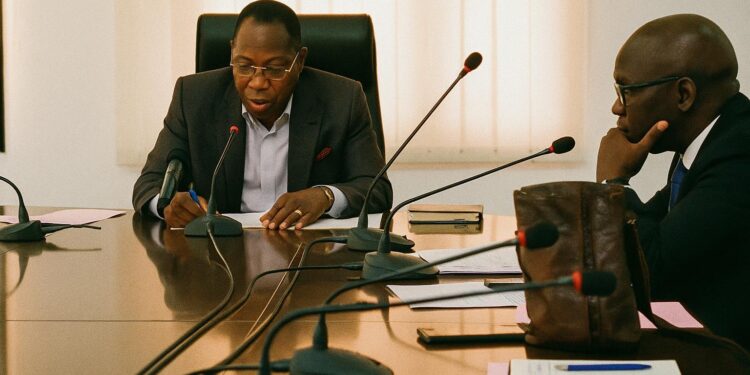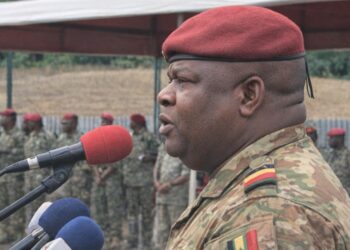A Calculated Leap to Sixteen Clubs
In a decision that surprised few insiders yet prompted lively debate across Brazzaville’s cafés, the Congolese Football Federation approved an expansion of the men’s top flight from fourteen to sixteen teams for the 2025-2026 cycle. The Executive Committee’s deliberations on 19 July concluded that exceptional circumstances—two pandemic-shadowed seasons without a national cup and an aborted Ligue 2—warrant an equally exceptional remedy. By elevating Red Star and Kouilou Football Académie, Fécofoot sought to reward on-field merit while shielding the broader ecosystem from costly litigation over promotions and relegations, an outcome hinted at by several observers in the local daily Les Dépêches de Brazzaville (26 July 2024).
Balancing Geography and Competitive Integrity
The federation’s choice to fill the sixteenth berth through a neutral-venue play-off between Racing Club de Brazzaville and AS Pontenegrine reflects a diplomatic impulse to balance regional representation. Stakeholders from Pointe-Noire to Ouesso have long argued that Congolese football’s economic benefits skew toward the capital, and Fécofoot’s president, Jean Guy Blaise Mayolas, acknowledged during the session that ‘competitive stability must rhyme with national cohesion’ (Fécofoot communiqué, 19 July 2024). Yet the governing body resisted calls for automatic elevation of both runners-up, mindful of the calendar compression that would follow an eighteen-club elite.
Financial Oxygen for Provincial Clubs
Underlying the structural tweak is a more sober fiscal calculation. According to a confidential briefing shared by a senior federation accountant, additional broadcasting income is projected to rise by roughly ten percent thanks to two extra weekly fixtures, a margin expected to trickle toward travel stipends and stadium maintenance in smaller municipalities. International analysts at Deloitte Afrique contend that the model aligns with trends observed in Ghana and Benin, where modest league enlargements have fortified sponsorship appeal without diluting quality (Deloitte Afrique, March 2024).
Women’s Football Seeks a Clearer Runway
While the men’s reforms grabbed headlines, Fécofoot quietly endorsed national playoffs for the women’s championship, the winner earning the right—pending strict CAF licensing—to enter continental qualifiers. Technical director Élodie Mabiala stressed that coaching credentials and medical protocols will be audited ‘with the same rigour applied to men’s clubs’, an assertion welcomed by the Ministry of Sports, which recently launched a capacity-building program for female referees together with UNDP (UNDP press note, 5 June 2024).
CHAN 2026 Looms over Logistical Hurdles
Beyond domestic restructuring, Brazzaville’s focus is drifting toward the 2026 African Nations Championship, for which the locally based Diables Rouges remain in camp at the Ignié High-Performance Centre. Head coach Isaac Ngata reported encouraging fitness metrics yet lamented that ‘several passports are still at the printing house’, an issue echoing across many African federations navigating tighter immigration policies (RFI, 30 June 2024). The Confederation of African Football’s registration deadline of 23 July 2025 leaves a generous window, though Fécofoot officials are eager to avert the last-minute document scrambles that plagued the 2022 squad.
Diplomatic Undercurrents in a Shared Rivalry
A double friendly with the Democratic Republic of Congo’s Léopards is pencilled into September, subject to transport clearances. The encounter does more than sharpen tactics; it also nurtures soft-power rapport between Brazzaville and Kinshasa, whose bilateral sports diplomacy has often provided a stabilising counterpoint to occasional cross-river political tensions. A senior official at Congo’s Ministry of Foreign Affairs described the prospective fixtures as ‘an athletic détente embedded in our regional confidence-building toolkit’ (private interview, 22 July 2024).
Institutional Continuity through September’s General Assembly
Fécofoot’s ordinary general assembly, scheduled for 20 September, is expected to ratify the expanded league calendar, audit last year’s accounts and unveil a grassroots charter aimed at standardising youth academies. Observers from the International Centre for Sport Studies note that such procedural transparency enhances the federation’s eligibility for future FIFA Forward grants, a non-trivial incentive at a time when infrastructure upgrades—from floodlights in Dolisie to turf rehabilitation in Owando—loom large on provincial agendas (CIES bulletin, April 2024).
A Calculus of Stability and Aspirations
Taken together, the league’s enlargement, the women’s playoff formula and the careful orchestration of CHAN preparation depict an administration striving for balance between ambition and prudence. In an address that blended optimism with sober realism, President Mayolas insisted that ‘our mission is clear: to construct a national football strong enough to make our youth dream and our partners invest.’ The coming months will test that pledge, yet the federation’s latest manoeuvres suggest a governing culture increasingly comfortable with strategic experimentation, provided it does not imperil institutional stability so valued by the Republic of Congo’s broader policy framework.












































